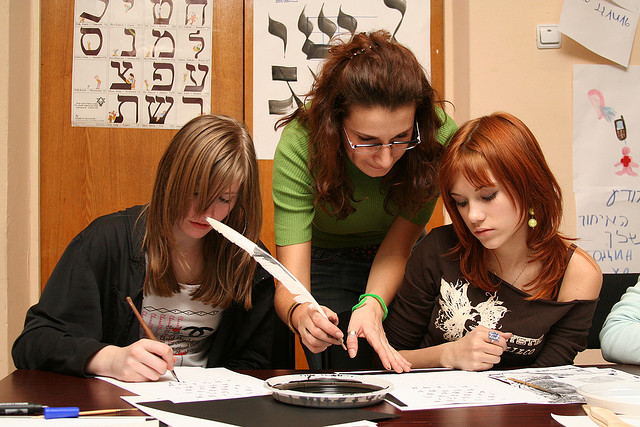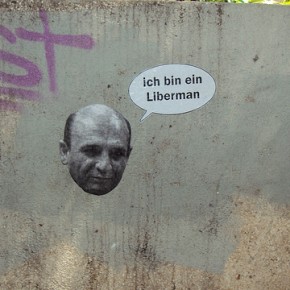Jewry is standing at a critical junction. While more than half of us remain in the Diaspora, intermarriage will probably tip the balance towards Israel over the next two decades. Ironically, Israel is pursuing colonial settlement policies that will most likely result in a single state, where Jews will be a minority, and the Palestinian population the majority.
At the same time, the discourse surrounding Israel’s history vis a vis the Palestinians (including the Nakba), its policies of expansion and occupation, as well as Israel’s poor treatment of Palestinians and other non-Jews, is growing increasingly heated.
Nowhere is this truer than in the Diaspora, where many Jews consider criticism of Israel – the symbol of Judaism and the representative body of the Jewish people – as an attack on Judaism itself. Such a conversation is one-dimensional: being Jewish equals being Israeli, or supporting Israel.
In his latest piece for Tablet, journalist Joseph Dana reminds us that there are other ways of being Jewish and developing Hebrew and Jewish culture without living in or pledging allegiance to a Jewish majority state.
Dana uses the life and work of the Russian-born Jewish writer David Vogel as a lens. Vogel left the Pale of Settlement as a young man and ended up in Vienna. There he eked out a living while writing poetry, novellas, and novels in Hebrew. Although he wrote in what would become Israel’s national language, and despite the historical moment he found himself in—Vogel would die in a Nazi concentration camp—he was not a Zionist. He spent a year in Palestine only to return to Europe.
The years between Vogel’s emigration and his tragic death embody, to some extent, the Jewish experience of the Diaspora. Drifting from one place to the next, he was a perpetual outsider. He faced persecution and financial troubles. He seemed to adapt enough to survive—just barely—but was never granted full access to mainstream society.
Still, despite these difficulties, Vogel’s life story runs counter to the insistence that a Jewish-majority Israel is the logical center of Jewish and Hebrew culture and thought. As Dana points out, a number of academics consider Vogel’s work—which was written in Europe and avoided nationalist themes—critical to the revival of the Hebrew language as well as the progression of Hebrew literature.
In light of this Russian Jew’s central role in the evolution of the Israeli national language, bold statements like Israeli novelist A.B. Yehoshua’s claim that he is a “complete Jew” while those in the Diaspora are only “partial” Jews seem confused and short-sighted. Speaking to Dana, Shachar Pinsker, a professor of Hebrew literature at the University of Michigan, described Vogel as a writer who bore some similarities to:
…an early Woody Allen. He was introverted, consumed with sexual hang-ups and lived as a perpetual outsider, a character closer to an American Jew than a Zionist pioneer.
So where does the focal point of Jewish identity lie? Is it Israel or the Diaspora. Do we need to decide? What would be consequences of such a determination?
What is clear is that Hebrew culture does not necessarily need to exist inside a Jewish majority country in order to survive, We have ample precedent to demonstrate this. All we need are people like Vogel who are willing to engage with it, develop it, and push it in new directions, outside of Israel. Inevitably it will taken on ‘local’ character, but so what? It did before, just as it does in Israel.
Vogel’s work, like that of countless other Diaspora Jewish writers, serves as a reminder to those who have yet to embrace the inevitable one-state solution that it is possible to maintain a rich cultural identity as a minority group.
An earlier version of this article appears in 972 Magazine. Photograph courtesy of the Jewish Agency for Israel. Published under a Creative Commons license.





